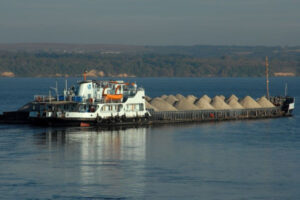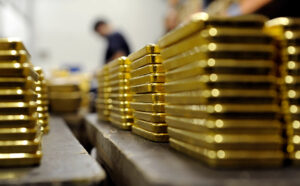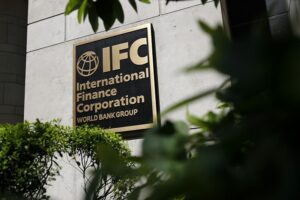
In January-September of this year, PJSC Shipping Company Ukrrichflot incurred a net loss of UAH 196.007 million, compared to a net profit of UAH 23.731 million in the same period last year.
According to the company’s interim report, which is available to the Interfax-Ukraine agency, the loss in the third quarter of 2025 amounted to UAH 61.264 million.
Revenue for this period decreased 7.7 times, from UAH 176.283 million to UAH 22.781 million.
Retained earnings at the end of September amounted to UAH 316.777 million.
The company ended 2024 with a net loss of UAH 29.983 million, compared to UAH 22.251 million in 2023.
PJSC “Shipping Company ”Ukrrichflot” is a private logistics operator engaged in river and sea cargo transportation.
According to the NDU, as of the third quarter of 2025, Oltinoro Investments Limited owns 5.5% of the shares, and Culata Limited (both based in Cyprus) owns 9.7758%. The closed-end non-diversified venture investment fund “P’yatyy,” on behalf of and at the expense of which LLC “AMC ”Svarog Asset Management“ operates, owns 66.1032%; LLC ”Promexpertinvest” owns 9.1666%.
The authorized capital of PJSC Ukrrichflot is UAH 51 million 428.586 thousand, the nominal value of a share is UAH 0.30.

Ukrtelecom, Ukraine’s largest fixed-line operator, will introduce a new speed standard for its GPON optical network on January 1, 2026, increasing it to 1 Gbit/s for households regardless of their current tariff plan, according to a press release from the company.
“We want gigabit internet to become the new standard for Ukrainians, not a premium option. That is why we are increasing the speed to 1 Gbit/s for households on our GPON network at no extra charge,” said Igor Yaremchuk, commercial director of Ukrtelecom, in the release.
According to him, subscribers will not need to contact the contact center or service centers to set up the new standard.
At the same time, it is noted that in order to use gigabit speeds, subscribers need to have a router or Wi-Fi Mesh system with 1 Gbit/s support.
In January-September 2025, Ukrtelecom increased its revenue by 5.6% compared to the same period in 2024, to UAH 3.8 billion, and EBITDA by 6.6%, to UAH 906 million, including an 11.3% increase in revenue from fiber-optic Internet services.
The operator noted that in January-September 2025, more than 3,500 km of fiber-optic lines were laid, and in total, since the beginning of the full-scale invasion, more than 20,000 km of optics have been built, enabling 1.4 million households to connect to fiber-optic internet. In total, fiber-optic internet is currently available to over 3.3 million users.

Initial registrations of new and used buses (including minibuses) in Ukraine in November 2025 increased by 19% compared to the same month last year, to 308 units, according to UkrAvtoprom on its Telegram channel.
Compared to October of this year, when 225 buses were registered, the market grew by 37%.
The share of new vehicles in November’s volume was 51%, compared to 63% last year.
As in the previous year, Ataman of the Cherkasy Bus plant leads among new buses with 57 units, which is 18 more than in November 2024 and October 2025.
Second in the ranking were buses from the ZAZ Zaporizhzhia Automobile Plant, with 30 units, which also took second place last year with 39 vehicles.
Isuzu buses came third in the ranking with 20 units, which were not among the ten most popular last year, while Etalon buses from the Chernihiv Automobile Plant did not make it into the top three in November (last year they ranked fourth with 18 vehicles).
Among the most frequently registered used buses in November were Mercedes-Benz (46 units), VDL (34 units), and Van Hool (15 units).
According to UkrAvtoprom, in January-November 2025, a total of 2,421 buses were added to Ukraine’s bus fleet (+27% compared to the same period in 2024), of which 1,203 were new (+9%) and 1,218 were used (+50%).
As reported, in 2024, initial registrations of new and used buses decreased by 19% compared to 2023, to 2,241 units, including new buses by 24%, to 1,296 units, and used buses by 12%, to 945 units.

Uzbekistan’s gold and foreign exchange reserves reached $61.23 billion as of December 1, 2025, according to data from the Central Bank. This is the highest figure since statistics began in 2013.
In November, reserves grew by another $1.9 billion (+3.2%), and since the beginning of the year — by $20 billion (+48.7%).
The main factor behind the growth was again gold, which rose in price on world markets.
According to the Central Bank’s estimates, the price increase from $4,013.2 to $4,159.4 per ounce (+3.6%) added about $1.8 billion to reserves (in September — $4.6 billion, in October — $2.5 billion).
The physical volume of gold has been increasing for the second month in a row. In November, it grew by 310,000 troy ounces (9.64 tons) to 12.23 million ounces (380.4 tons).
The value of gold reserves increased by $3 billion amid rising prices and reached a historic high of $50.86 billion. Gold now accounts for about 83% of all reserves.
At the same time, the currency portion of reserves decreased by $1.1 billion to $9.8 billion.
The volume of securities increased by $503.3 million to $1.53 billion.

The International Finance Corporation (IFC), a member of the World Bank Group, will acquire a stake in Knyazha Vienna Insurance Group (Knyazha VIG) and Ukrainian Insurance Group (USG) (both based in Kyiv), owned by Vienna Insurance Group (VIG), through a capital increase.
According to a press release from Knyazha VIG, subject to regulatory approvals, IFC will acquire approximately 20% in each of the two VIG companies, USG and Knyazha VIG.
The relevant agreement has been signed by IFC, VIG Holding, and the two Ukrainian companies.
“Thanks to the support and extensive expertise of IFC as a key partner, VIG plans to promote the development of the Ukrainian insurance market and further strengthen its position in Ukraine. IFC will provide support in the development of new products, sales development, and digitalization,” the statement said.
In addition, it is noted that with the support of the IFC, the companies plan to expand their product portfolio and accelerate digitalization. Building on its existing partnership with AON and Lloyd’s, VIG also intends to play an active role in the reconstruction of Ukraine after the end of the war.
“We have been working with the IFC since the end of 2022, when they acquired a stake in our Bulgarian pension fund Doverie. In Bulgaria, the main focus is on developing the pension business. In Ukraine, however, expanding insurance coverage is key to the country’s future reconstruction. Together with the IFC and our existing partners AON and Lloyd’s, we are preparing to play an active role in the country’s renewal process,” emphasized Peter Göflinger, Deputy CEO of Vienna Insurance Group.
According to Harald Riener, member of the Vienna Insurance Group’s Executive Board responsible for the Ukrainian market, Ukraine is and will remain part of VIG’s key market in Central and Eastern Europe.
“We are extremely proud of the resilience of our Ukrainian colleagues, whose unwavering dedication ensures the stability and profitability of companies even in the difficult conditions of war. Together with IFC, we are combining the experience of our teams and partners to offer highly sought-after insurance solutions for the country’s reconstruction after the end of the war, which we all sincerely hope for,” he said.
VIG has been operating in Ukraine for 21 years. The company currently ranks second in the market with an 11% share. Three VIG companies in Ukraine — USG, Knyazha VIG, and Knyazha Life VIG — achieved insurance premiums of EUR128 million in 2024.